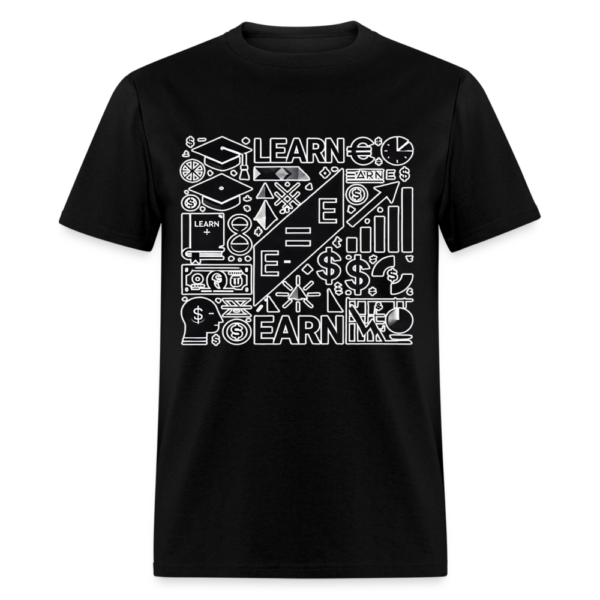Your cart is currently empty!
Tag: money management
Is Pennsylvania About to Revolutionize Public School Education with Financial Literacy Classes?
In today’s ever-changing world, being financially savvy is no longer an option—it’s a necessity. As economic challenges and market uncertainties persist, Pennsylvania is weighing a transformative change for its public school system: the possibility of requiring financial literacy classes. This proposal is gaining momentum among educators, policymakers, and parents alike, as the state aims to equip its young citizens with essential life skills that extend well beyond traditional academic subjects.
The Growing Need for Financial Literacy in Schools
Economic pressures, technological advancements, and evolving job markets are reshaping the way we think about education. Financial literacy, which includes the ability to manage personal finances, understand credit, invest wisely, and plan for the future, has emerged as a critical skill set. Without a robust foundation in these areas, students may find themselves unprepared to handle real-world financial challenges.
Pennsylvania, like many other states, has seen an increasing number of families grappling with debt, limited savings, and complex financial products. By incorporating financial literacy into the public school curriculum, the state could help bridge the gap between traditional academic learning and practical life skills. With early education on money management, students can learn how to budget effectively, understand the importance of saving, and navigate the complexities of loans and credit scores.
Legislative Discussion and the Road Ahead
Lawmakers in Pennsylvania are actively debating the benefits and potential challenges of mandating financial literacy classes in public schools. The proposed initiative would require schools to integrate a curriculum that covers a broad range of topics, from budgeting and saving to investing and credit management. This initiative is still in the discussion phase, and stakeholders are working collaboratively to design a program that is both comprehensive and adaptable to the needs of a diverse student body.
Several factors are fueling this debate. On one hand, the demand for such education is supported by studies showing that early exposure to personal finance concepts can lead to better financial outcomes in adulthood. On the other hand, critics raise concerns about the feasibility of implementing new courses across an already packed curriculum and the need for properly trained educators to deliver this material effectively.
Legislators are also considering how to integrate these courses within the existing framework of public education without overburdening students or teachers. Proposals include offering the courses as electives or integrating financial topics into existing math and social studies classes. This flexible approach aims to maximize impact while minimizing disruption to the traditional education system.
How Financial Literacy Classes Could Transform Student Lives
Building a Foundation for Financial Wellbeing
Integrating financial literacy into the curriculum could profoundly impact students’ future financial wellbeing. By learning early about money management, students can gain a better understanding of how to handle personal finances responsibly. This education could lead to smarter decisions regarding college loans, credit card usage, and even investments later in life.
Promoting Independence and Responsibility
Financial literacy empowers students to take control of their financial futures. When students understand the value of money and the importance of saving, they are more likely to become responsible, independent adults. This can reduce the likelihood of financial pitfalls such as high-interest debt and poor credit management.
Enhancing Career Preparedness
Beyond personal finance, these courses can also enhance overall career preparedness. In today’s competitive job market, employers increasingly value soft skills, including financial acumen. Understanding financial principles can give students an edge, making them more attractive to future employers who are looking for well-rounded individuals with practical skills.
Strengthening Community and Economic Growth
On a broader scale, a generation of financially literate citizens can drive stronger local economies. When young people make informed financial decisions, they contribute to a more stable and prosperous community. Increased financial literacy can lead to better investments in local businesses, higher rates of home ownership, and a general reduction in economic inequality over time.
Implementation Strategies: Overcoming Challenges and Embracing Opportunities
Curriculum Development and Teacher Training
One of the major challenges of this initiative is ensuring that teachers are adequately prepared to teach financial literacy. This involves not only developing a standardized curriculum but also investing in professional development programs for educators. Pennsylvania’s Department of Education is considering partnerships with financial experts and institutions to create training modules and resource kits that can be easily implemented in classrooms.
Teacher training programs would need to cover a range of topics, ensuring that educators feel confident discussing everything from basic budgeting techniques to more complex investment strategies. This comprehensive approach can help bridge any gaps in teachers’ financial knowledge and make the transition smoother.
Integrating Technology and Real-World Applications
The integration of technology in financial education is another critical component of the proposed curriculum. Digital tools and interactive platforms can make learning about finances engaging and accessible. For example, online simulations and budgeting apps can provide students with hands-on experience in managing money, reinforcing lessons taught in class.
By incorporating real-world applications, students can see firsthand how financial principles apply to their daily lives. Classroom activities might include mock investment challenges, interactive budgeting exercises, and projects that require students to create long-term financial plans. This experiential learning can help demystify financial concepts and inspire students to apply what they’ve learned in practical scenarios.
Addressing Diverse Learning Needs
Pennsylvania’s public schools serve a diverse population, and any new curriculum must account for varying levels of financial knowledge and learning styles. Differentiated instruction methods could be employed to ensure that all students, regardless of their background, can benefit from the course. This might include offering supplementary materials for advanced learners, while providing extra support for those who might need additional help grasping fundamental concepts.
Additionally, bilingual and culturally responsive teaching practices can make the curriculum more accessible to students from diverse linguistic and cultural backgrounds. By making financial education inclusive, Pennsylvania can help ensure that every student has the opportunity to gain essential financial skills.
Community Reaction and Expert Opinions
The proposed mandate has already sparked a lively discussion among various community groups. Many parents and educators are in favor of integrating financial literacy into the curriculum, viewing it as a necessary tool to prepare students for the future. Financial experts also applaud the initiative, noting that early education on money management can significantly improve lifetime financial outcomes.
However, some community members express concerns about the potential challenges in implementation. Questions have been raised about how schools will manage the added workload, how to source qualified instructors, and how to keep the curriculum updated with the rapidly changing financial landscape. Despite these challenges, the overall sentiment is one of cautious optimism, as the potential benefits of a financially educated populace far outweigh the hurdles.
The Future of Financial Literacy in Pennsylvania
As Pennsylvania navigates the path toward possibly requiring financial literacy classes in public schools, the future looks promising. If successfully implemented, this initiative could serve as a model for other states and regions looking to empower their youth with critical life skills.
Potential Long-Term Benefits
- Improved Financial Outcomes: With a strong foundation in personal finance, future generations may experience fewer financial hardships, lower levels of debt, and a greater ability to build wealth over time.
- Economic Stability: A financially literate population contributes to overall economic stability, reducing the likelihood of widespread financial crises driven by uninformed consumer behavior.
- Empowered Communities: When individuals understand how to manage their finances, they are better equipped to contribute positively to their communities, support local businesses, and drive economic growth.
- Increased Access to Higher Education: With improved financial planning skills, students may be better prepared to manage college expenses, reducing the burden of student debt and making higher education more accessible.
Looking Beyond Pennsylvania
The discussion around financial literacy in schools is not limited to Pennsylvania. Across the United States, there is a growing recognition that traditional education systems often overlook the practical skills necessary for modern life. As more states consider similar mandates, the conversation may eventually lead to nationwide reforms in how financial education is approached. This trend reflects a broader shift toward preparing students for real-world challenges, ensuring that they are not only academically proficient but also equipped with the skills to thrive financially.
Call to Action: Join the Conversation!
We want to hear from you! What are your thoughts on Pennsylvania’s potential move to require financial literacy classes in public schools? Do you believe this initiative will equip students with the skills they need for a successful future, or do you see potential challenges in its implementation? Let us know in the comments below, and don’t hesitate to share this article with your friends and family. Your voice matters, and the more we discuss these important topics, the better prepared our communities will be for the future.
Conclusion
The conversation surrounding financial literacy in Pennsylvania is more than just a policy debate—it’s a movement toward creating a better, more informed future for our youth. As the state considers making financial literacy classes a requirement in public schools, it’s clear that the goal is to empower the next generation with the knowledge and skills necessary to navigate an increasingly complex financial landscape.
With potential benefits ranging from improved individual financial outcomes to broader economic stability, this initiative represents a proactive step toward addressing the real-world challenges that young people face today. While there are challenges to be addressed in terms of curriculum development and teacher training, the overall impact on society could be profound.
Financial literacy is not merely about understanding numbers—it’s about fostering a sense of empowerment and independence that will serve students throughout their lives. By taking this step, Pennsylvania could set a new standard for education in the United States, inspiring other states to follow suit and prioritize the financial wellbeing of their citizens.
Remember to comment below with your thoughts and share this post if you believe in the power of education to transform lives. Together, we can make a difference in shaping a brighter financial future for everyone.
Learn Equals Earn Unisex Classic T-Shirt
$13.99Learn Equals Earn Unisex Classic T-Shirt. Empower yourself with the Learn Equals Earn Unisex Classic T-Shirt, a statement tee that highlights the value of knowledge and growth. This classic-fit, comfortable shirt is perfect for everyday wear, spreading a positive message for students, professionals, and lifelong learners. Whether you’re in class, at work, or relaxing, let this tee inspire you and those around you!
-

Hungry and Humble Football Player Flapping Arms Touchdown Celebration Unisex Classic T-Shirt #philly
$19.99 Select options This product has multiple variants. The options may be chosen on the product page -

Africatown in Philly Phrase Unisex Classic T-Shirt
$13.99 Select options This product has multiple variants. The options may be chosen on the product page -

Vintage Funny Cat Selfie UFO Alien Invasion Unisex Classic T-Shirt
$13.99 Select options This product has multiple variants. The options may be chosen on the product page -

Vintage Philly Underdogs German Shepherds Unisex Classic T-Shirt
$9.99 Select options This product has multiple variants. The options may be chosen on the product page -

Voxel Art Music Producer and DJ Headphones Unisex Classic T-Shirt
$24.99 Select options This product has multiple variants. The options may be chosen on the product page
————————————————
We use AI GPT Chatbots to help with our content and may get some things wrong.
————————————————-
Cryptocurrency, Urban Finance, and “Making a Dollar Out of 15 Cents”
The phrase “How to make a dollar out of 15 cents” is deeply ingrained in urban culture, often used to describe the resilience, resourcefulness, and innovation required to overcome economic adversity. Popularized by hip-hop artists as a symbol of financial struggle and ambition, this saying captures the essence of turning meager resources into meaningful opportunities. With the rise of cryptocurrency and decentralized finance (DeFi), this ethos takes on new dimensions. In this post, we explore how cryptocurrency intersects with urban finance, addressing whether it can empower communities to bridge the gap between financial hardship and economic prosperity.
The Economic Landscape in Urban Communities
Urban economies, particularly in underserved neighborhoods, often grapple with systemic challenges such as high unemployment rates, limited access to capital, and financial exclusion. Traditional banking systems frequently overlook these communities, creating barriers to saving, investing, and entrepreneurship. Many residents rely on payday loans and check-cashing services, which charge exorbitant fees, further entrenching economic inequality.
In this environment, the mantra of “making a dollar out of 15 cents” becomes a survival strategy. It’s about maximizing every penny, leveraging creativity, and finding alternative paths to economic stability. While this resilience is admirable, it is not a substitute for systemic change or access to better financial tools. This is where cryptocurrency presents an intriguing opportunity.
Cryptocurrency: A New Financial Frontier
Cryptocurrency—digital money built on blockchain technology—has the potential to revolutionize how money is earned, saved, and invested. Unlike traditional currencies controlled by central banks, cryptocurrencies operate on decentralized networks. This structure offers several benefits, including:
- Financial Inclusion: Cryptocurrencies allow anyone with an internet connection to participate in the global economy, bypassing traditional gatekeepers.
- Lower Transaction Costs: Sending money via blockchain can be more cost-effective than using banks or remittance services.
- Decentralized Finance (DeFi): DeFi platforms enable users to access loans, savings accounts, and investment opportunities without requiring a credit check or banking history.
For urban communities long excluded from traditional financial systems, these features could level the playing field. However, the promise of cryptocurrency also comes with challenges, including volatility, lack of regulation, and the need for digital literacy.
Hip-Hop and Cryptocurrency: A Cultural Convergence
Hip-hop has always been a platform for addressing economic struggles and celebrating entrepreneurial triumphs. Artists like Nipsey Hussle, Nas, and 50 Cent have embraced cryptocurrency, recognizing its potential to democratize wealth-building opportunities.
- Nipsey Hussle was an early advocate for Bitcoin, seeing it as a way to empower underserved communities. He invested in a cryptocurrency startup and encouraged financial literacy.
- Nas co-founded a venture capital firm that has invested in several blockchain companies, highlighting the technology’s transformative potential.
- 50 Cent famously accepted Bitcoin for an album in 2014, reportedly amassing millions as the currency’s value surged.
This alignment of hip-hop culture with cryptocurrency underscores a shared ethos: challenging traditional systems, embracing innovation, and hustling to “make a dollar out of 15 cents.”
Real-World Applications of Cryptocurrency in Urban Finance
1. Remittances and Peer-to-Peer Payments
Cryptocurrency can reduce the cost of sending money, a critical benefit for urban residents supporting family members abroad or in other states. Platforms like Stellar and Ripple specialize in low-cost, cross-border payments, making them attractive alternatives to traditional remittance services.
2. Access to Capital for Entrepreneurs
Small business owners in urban areas often struggle to secure loans due to poor credit scores or lack of collateral. DeFi platforms like Aave and Compound allow users to borrow against cryptocurrency holdings, opening doors for aspiring entrepreneurs.
3. Community Investment and Crowdfunding
Blockchain technology enables innovative models for community investment. For example, decentralized autonomous organizations (DAOs) allow groups to pool resources and vote on how to allocate funds. This could be used to finance local projects, from community gardens to small businesses.
4. Tokenized Real Estate
Tokenization allows real estate assets to be divided into smaller shares, making it easier for urban residents to invest in property. Platforms like Lofty.ai enable individuals to own fractional shares in rental properties, creating a pathway to wealth-building.
Challenges and Risks
While cryptocurrency offers exciting possibilities, it is not without its pitfalls:
- Volatility: Cryptocurrencies are notorious for price swings, which can deter those with limited financial resources.
- Scams and Fraud: The decentralized nature of cryptocurrency makes it a target for scams, disproportionately affecting newcomers unfamiliar with the space.
- Digital Divide: Access to reliable internet and digital literacy remains a barrier in some urban areas.
- Regulatory Uncertainty: Governments around the world are still grappling with how to regulate cryptocurrency, creating an unpredictable environment.
Addressing these challenges requires education, community engagement, and partnerships between tech companies, nonprofits, and local governments.
Bridging the Gap: Financial Literacy and Crypto Education
Education is the cornerstone of empowerment. To ensure that urban communities can benefit from cryptocurrency, financial literacy programs must include:
- Basics of Blockchain and Cryptocurrency: Explaining key concepts like wallets, private keys, and blockchain technology.
- Investment Strategies: Highlighting the importance of diversification and the risks of over-investing in volatile assets.
- Avoiding Scams: Teaching residents how to identify fraudulent schemes and protect their assets.
- Using DeFi Tools: Providing hands-on training with platforms that offer savings, loans, and investment opportunities.
Organizations like Crypto Kids Camp and Black Bitcoin Billionaires are already working to bridge the knowledge gap, offering workshops and resources tailored to underserved communities.
The Future: Building Urban Wealth Through Crypto
Cryptocurrency is not a silver bullet for systemic economic issues, but it can be a powerful tool in the fight for financial equity. By embracing blockchain technology, urban communities have the opportunity to:
- Reduce reliance on predatory financial services.
- Create new pathways for entrepreneurship and wealth-building.
- Foster greater economic participation and collaboration.
As hip-hop artists and community leaders continue to champion financial literacy and innovation, the dream of “making a dollar out of 15 cents” may become more attainable than ever.
Conclusion
The intersection of cryptocurrency, urban finance, and hip-hop culture reflects a shared aspiration: overcoming systemic barriers and seizing new opportunities. While challenges remain, the decentralized nature of blockchain technology offers a framework for economic empowerment that aligns with the resilience and creativity at the heart of urban communities. By embracing this digital revolution and fostering financial education, we can help transform “15 cents” into lasting prosperity.
Vintage Style #Bitcoin To The Moon Graphic Unisex Classic T-Shirt
$13.99Vintage Style Bitcoin To The Moon Graphic Unisex Classic T-Shirt. Shoot for the stars with the Vintage Style Bitcoin To The Moon Graphic Unisex Classic T-Shirt. Featuring a retro-inspired “Bitcoin To The Moon” design, this tee is perfect for crypto enthusiasts and fans of blockchain culture. Comfortable and stylish, it’s ideal for casual outings or as a statement piece at crypto meet-ups. Show your love for Bitcoin and the journey to the moon with this standout shirt!
-

Hungry and Humble Football Player Flapping Arms Touchdown Celebration Unisex Classic T-Shirt #philly
$19.99 Select options This product has multiple variants. The options may be chosen on the product page -

Africatown in Philly Phrase Unisex Classic T-Shirt
$13.99 Select options This product has multiple variants. The options may be chosen on the product page -

Vintage Funny Cat Selfie UFO Alien Invasion Unisex Classic T-Shirt
$13.99 Select options This product has multiple variants. The options may be chosen on the product page -

Vintage Philly Underdogs German Shepherds Unisex Classic T-Shirt
$9.99 Select options This product has multiple variants. The options may be chosen on the product page -

Voxel Art Music Producer and DJ Headphones Unisex Classic T-Shirt
$24.99 Select options This product has multiple variants. The options may be chosen on the product page
————————————————
We use AI GPT Chatbots to help with our content and may get some things wrong.
————————————————-





